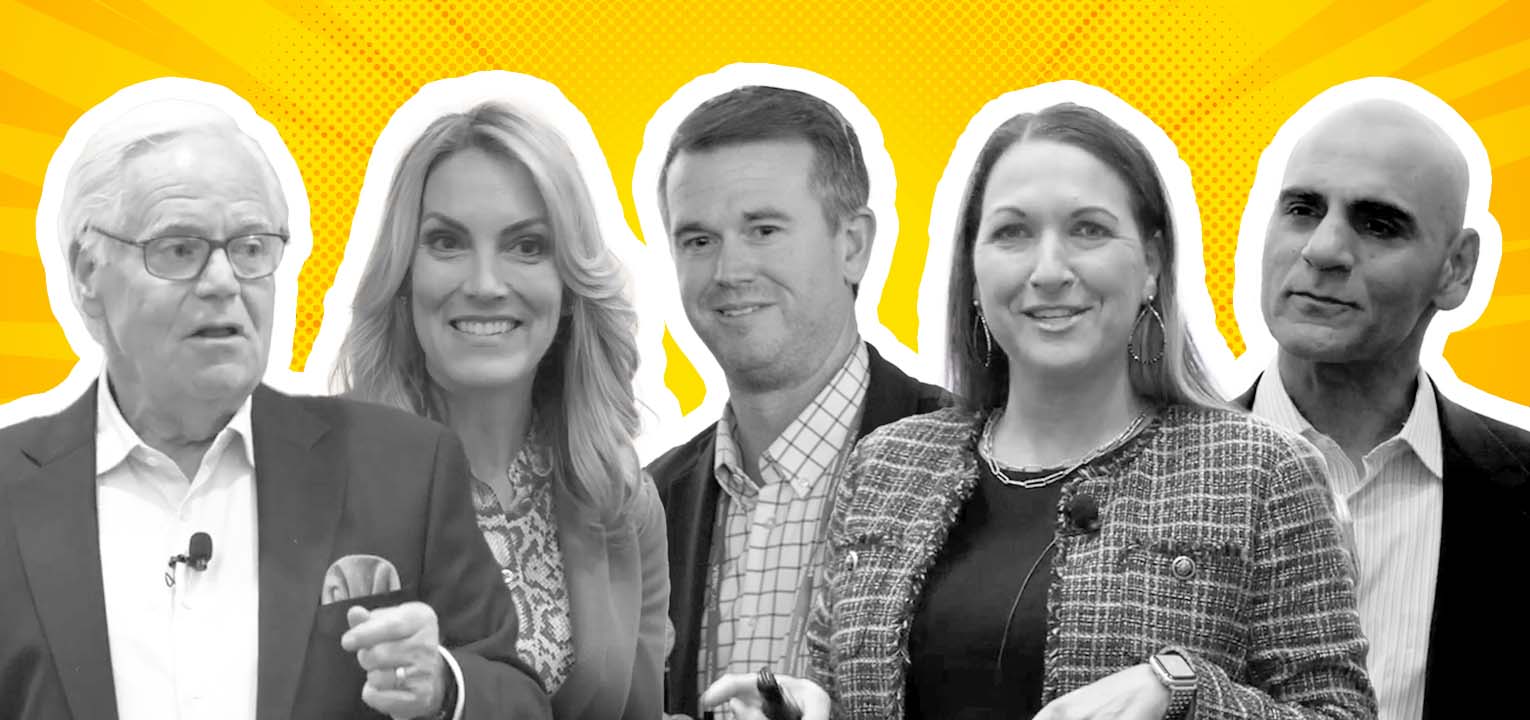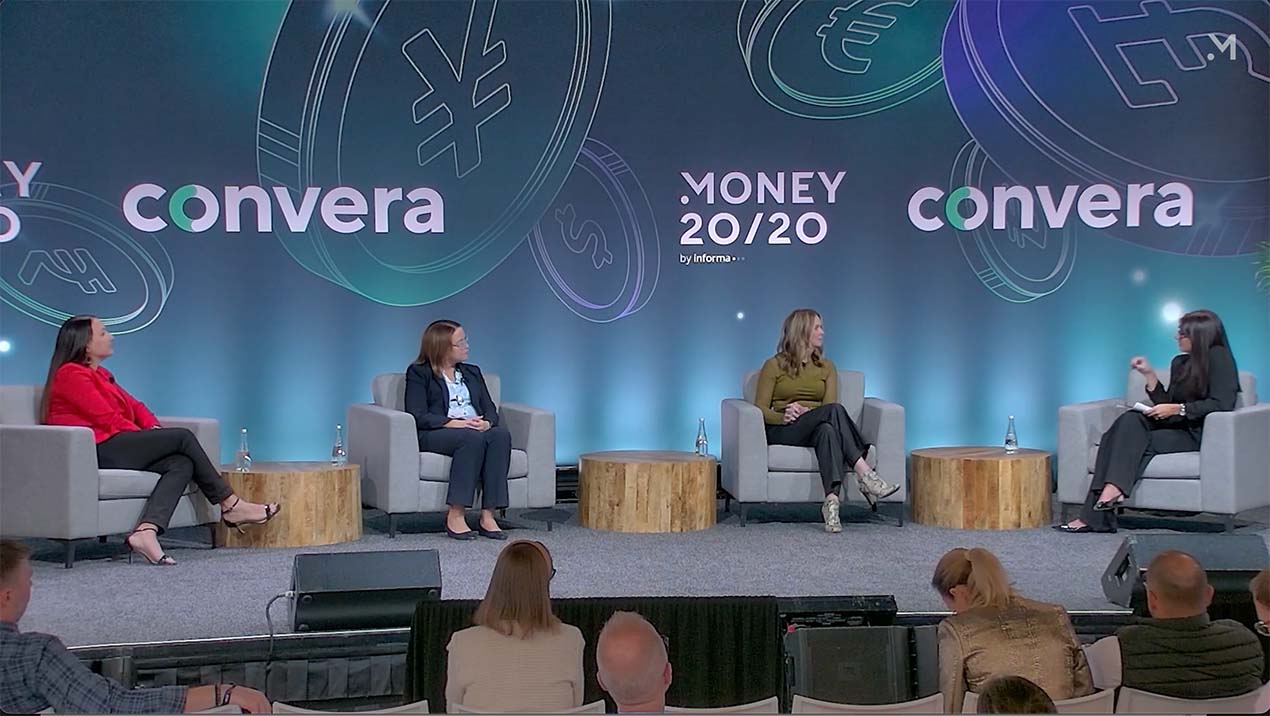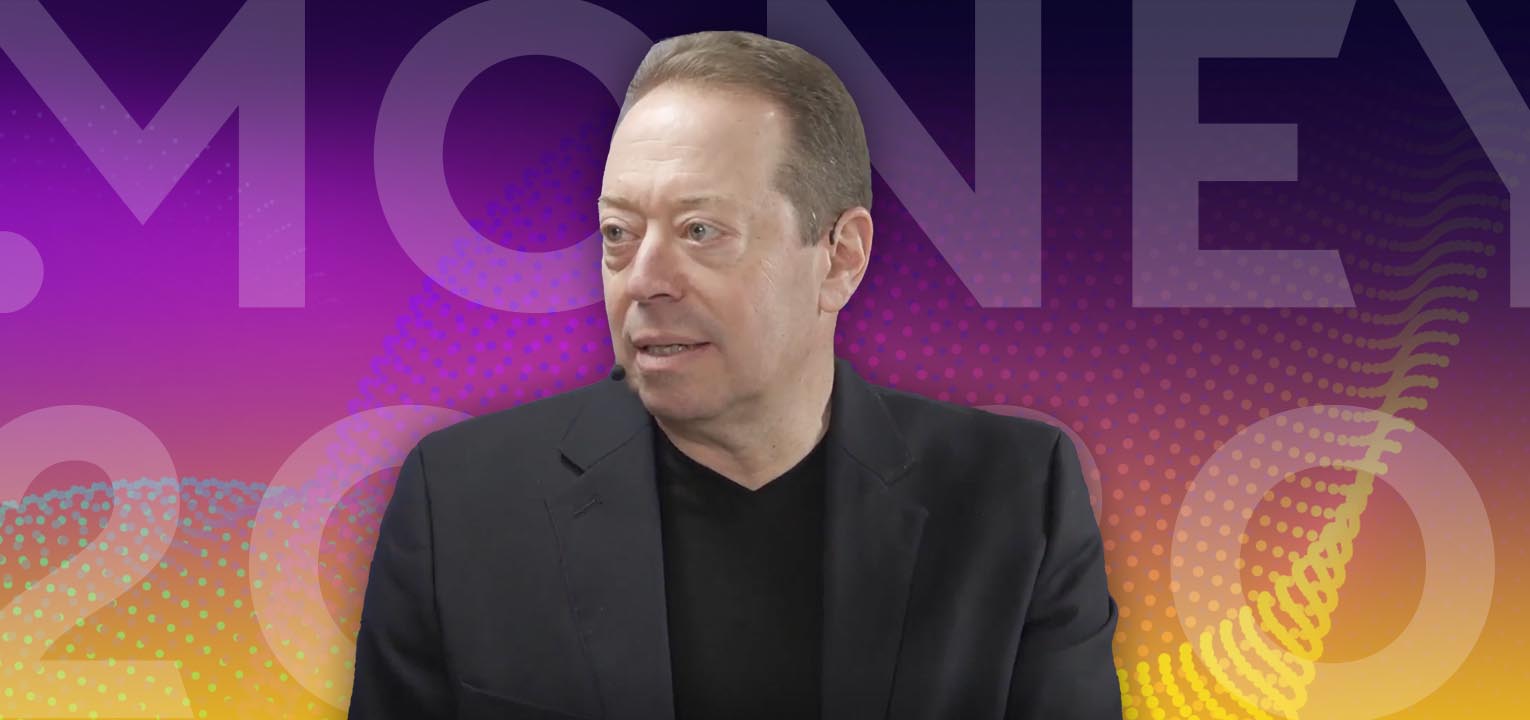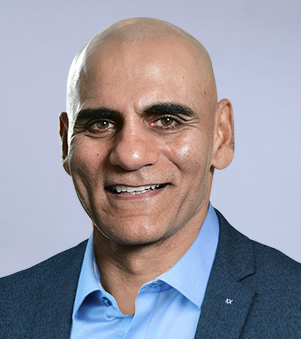May 19, 2025
The Emergence of Cognitive Banking at This Year’s Financial Brand Forum

By Jody Bhagat, President Global Banking, Personetics
Last month’s Financial Brand Forum in Las Vegas was a coming out of sorts. The concept of Cognitive Banking received strong endorsement as key to competing in a landscape of rapidly evolving customer expectations and competitive dynamics. The standing-room-only attendance at the Cognitive Banking pre-conference symposium and the impactful presentations by bank executives and industry influencers were indicators of the relevance of this topic for forward-thinking financial institutions.
Embracing Cognitive Banking
It was remarkable to see the level of interest in the Cognitive Banking pre-conference symposium. Over 120 bank and credit union participants joined a half-day presentation and lively discussion.
Our session host Jim Marous, influencer and The Financial Brand Co-Publisher, noted during his opening remarks that we find ourselves at a critical junction where the technology exists, the customer demand is clear, but the deciding factor often comes down to leadership courage. Financial institutions need executives willing to step into what Jim calls “the danger zone”; making decisions that might feel uncomfortable but are necessary for progress. And they need to embrace cognitive banking across the whole organization ensuring that there is management, and consequently company-wide, alignment.
The CBA Perspective
The audience was treated to a fireside chat with Lindsey Johnson, President & CEO of the Consumer Bankers Association (CBA). She provided her unique perspective on the regulatory environment and near-term priorities for the august industry body. She acknowledged that helping the consumer obtain greater control and greater understanding of their own financial finances is an important industry pursuit. Lindsey emphasized the delicate balance financial institutions must strike between utilizing AI for personalization while maintaining consumer protection and regulatory compliance.
Cognitive Banking Reaps Results
Throughout the Forum, we had the privilege of showcasing how Cognitive Banking delivers tangible results for institutions, large and small. The sessions featured two very different, but inspiring financial institutions, each showing in their own way how they are implementing personalization capabilities with impressive outcomes.
Performance Marketing: Truist’s Virtuous Cycle of Deep Customer Understanding
The first session was with Truist, a top 10 bank in the US with over $530 billion in assets. Sherry Graziano, Head of Digital Client Experience and Marketing at Truist, shared their fascinating journey exploring their journey of personalized insights and enhanced performance marketing for Truist. The key takeaway: when banks or credit unions move from simple reactive interactions to true personalized experience, they create a virtuous cycle where deeper customer understanding leads to more relevant guidance, which drives engagement, which in turn generates even richer insights.
According to Graziano, this approach changes traditional marketing from product-pushing to needs-based engagement that customers genuinely value. The industry results we’re seeing are compelling; financial institutions that embrace these capabilities are generally experiencing stronger customer engagement, better satisfaction metrics, and more enduring relationships.
Since Truist Insights were launched, they have delivered over a billion financial advice insights to 5.3 million clients. Truist now enjoys a 4.5 out of 5-star rating from clients with digital sales accounting for more than 40% of new accounts being opened for the bank.
Predictive Guidance: Central Bank’s Blueprint for Stronger Digital Relationships
Central Bank was represented by Josh Redel, Senior Vice President and Director of Corporate Marketing. A community bank headquartered in Jefferson City, Missouri, Central Bank has $18.2 billion in assets and serves seven states in the Midwest.
With mobile banking being their top marketing channel, Central Bank wanted to be able to have smarter, more meaningful conversations with their digital customers, treating them as unique individuals. Their strategy was based on three pillars:
- Personalize the digital banking experience
- Build and monetize the customer relationship
- Use AI efficiently to drive results
By leveraging Cognitive Banking capabilities, Central can look at their customers’ transactions, history and behavior and, over time, forecast whether a user is at risk of overdraft. They then present that insight to users who are indeed at risk and communicate a date range during which they might want to consider actions to ameliorate the situation.
Such contextual insights have raised Central Bank’s engagement rate, and Redel is particularly proud of their highly impressive 22% percent click-through-rate (clicks on calls-to-action within those insights). Their net promoter score of 70.6 is also well above the industry average.
Customer Expectations and Market Trends
The excitement at the Forum confirmed what Personetics’ research indicated: customers increasingly expect their financial institutions to proactively help them achieve better financial outcomes. In fact, 84% of consumers say they’d consider switching banks to get more timely, relevant tips that improve their financial health (with that number reaching 95% among Gen Z).
These statistics align with what we are seeing in account switching behavior across the industry. Consumers—particularly the younger generation—are demonstrating a higher degree of “financial promiscuity”, and a willingness to move their banking relationships based on the quality of digital experiences and financial guidance.
The Human Element of AI is Imperative
One of the most meaningful discussions during our sessions addressed the anxiety many feel about AI’s role in banking. As Jim Marous pointed out during a panel discussion at the Financial Brand pre-conference Symposium: “People are scared they’re going to lose their jobs to AI. We have to make people understand they’re going to be able to make it.”
This perspective is useful as banks consider Cognitive Banking’s implementation. The goal isn’t to replace human bankers but to augment them, giving them better tools and insights to serve customers more effectively. The most successful institutions will be those that find the right balance between AI-driven efficiency and human empathy.
Where Do We Go From Here?
As customer expectations continue to rise and digital engagement becomes the primary relationship channel, financial institutions must evolve beyond basic and reactive digital services.
We are at an inflection point in banking’s evolution, one where the most successful institutions will be those that combine the best of human understanding with the scale and intelligence of AI to create truly Cognitive Banking experiences.
For those who were unable to attend our sessions at the Forum, we’ll be sharing more detailed recaps of the Truist, Central Bank, and performance marketing discussions in the coming weeks. In the meantime, I invite you to reach out if you’d like to explore how Cognitive Banking can drive meaningful results for your institution and customers.
For a complimentary consultation session to learn how Personetics can help you enhance your customers’ digital banking experience, feel free to contact us using the form above.
Download the Cognitive Banking Report.
Want To See How Cognitive Banking and AI Can Transform Customer Engagement?
Request a Demo Now
Latest Posts

Meet Personetics at North America Banking & Fintech Events in 2026

Meet Personetics at LATAM Banking & Fintech Events in 2026

Meet Personetics at APAC Banking & Fintech Events in 2026

How to Monetize AI While Building Trust

Cognitive Banking, Primacy, and the New AI Playbook for Banks: Insights from Money 20/20

How to Prevent Churn & Grow Wallet Share: Bank Primacy Playbook

Jody Bhagat
President Global Banking
Jody brings deep operating experience in financial services – managing direct channels, launching digital ventures, and leading digital transformation programs. He was previously a Partner at McKinsey & Company, where he helped financial institutions define and execute digital transformation programs to drive customer growth and operating efficiency. Jody also served in senior digital operating roles at U.S. Bank, Wells Fargo, and Providian. In these positions, he led digital sales and service functions and direct to consumer businesses to deliver organic growth and enhanced customer experience. Jody has an MBA from Northwestern University and a BS in Computer Engineering from The University of Michigan.









